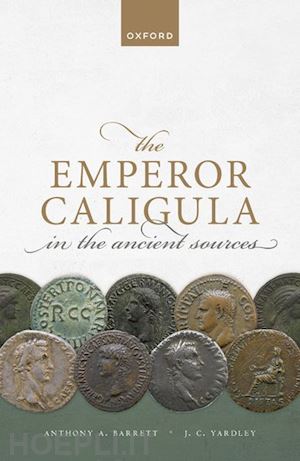There can be few historical figures who have made such a powerful impact on the popular imagination as the Roman emperor Caligula (died AD 41). Yet an accurate reconstruction of his life and reign largely eludes us. This is paradoxical. The source material is plentiful, even lavish, by the standards of antiquity. The problem lies not so much in the quantity of evidence available, but in its quality. For our information we are obliged to draw on ancient accounts that can be colourful and wonderfully entertaining but have a flexible notion of historical truth and often seem to border on fiction. The consequence is that there is hardly a detail that the modern historian can present without deep reservations about its reliability. A biography of Caligula, in the regular modern sense of the word, is an insurmountable task, and can be at best be a summary personal interpretation by an individual historian of a mass of incoherent and often inconsistent material. Where does this leave the serious general reader? This book approaches Caligula from a quite different angle, by presenting the reader with the raw material of the ancient sources. It provides over 300 translated passages of texts, taken mainly from ancient writers, but also from coins and inscriptions. The translations are accompanied by extensive introductions and notes. These are tailored to the non-specialist, and intended to help such readers navigate material that is often contradictory, sometimes downright incredible, and helps to place events and institutions in their historical contexts. The colourful and exotic incidents are still here, but are presented in a context that will help the reader gain a more sophisticated understanding of how scholars try to reconstruct events of the past. This approach allows the reader to tackle head-on the stark reality that what we read in our sources is not necessarily the truth.











